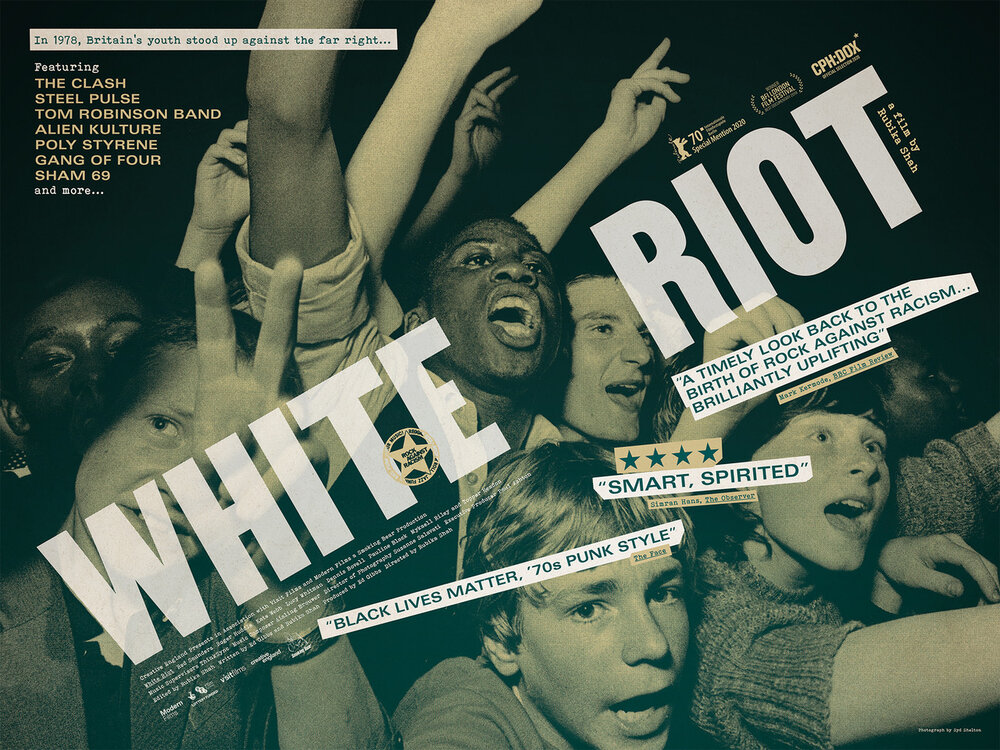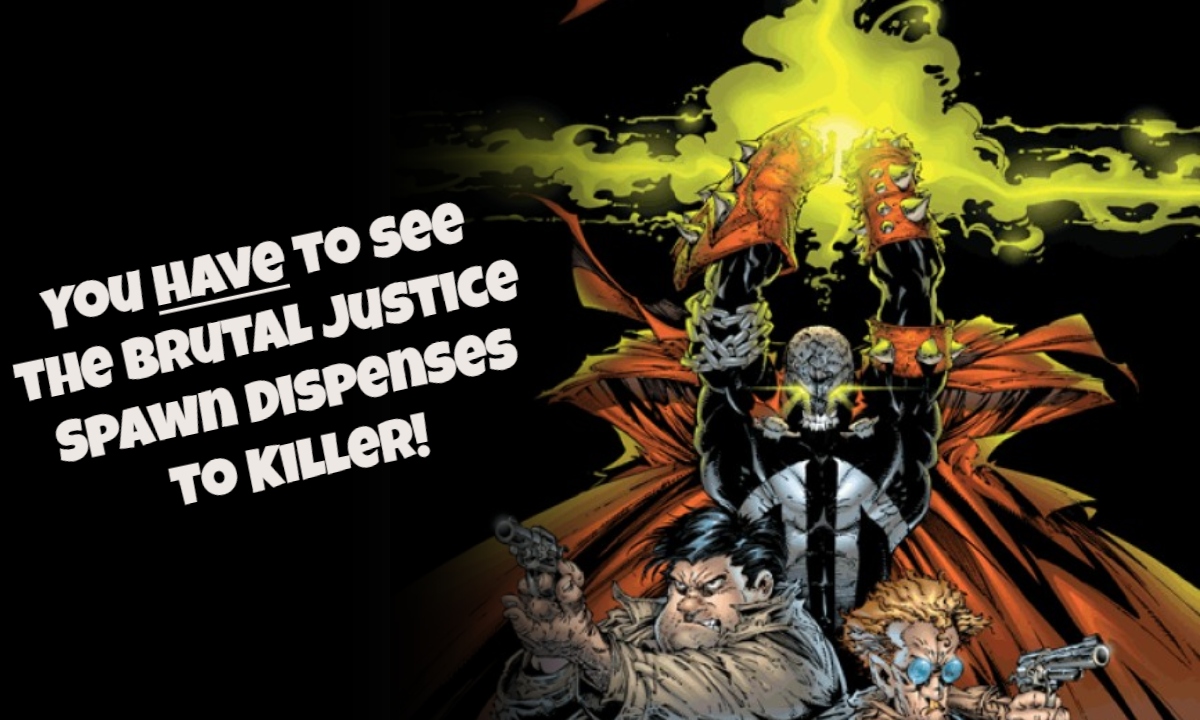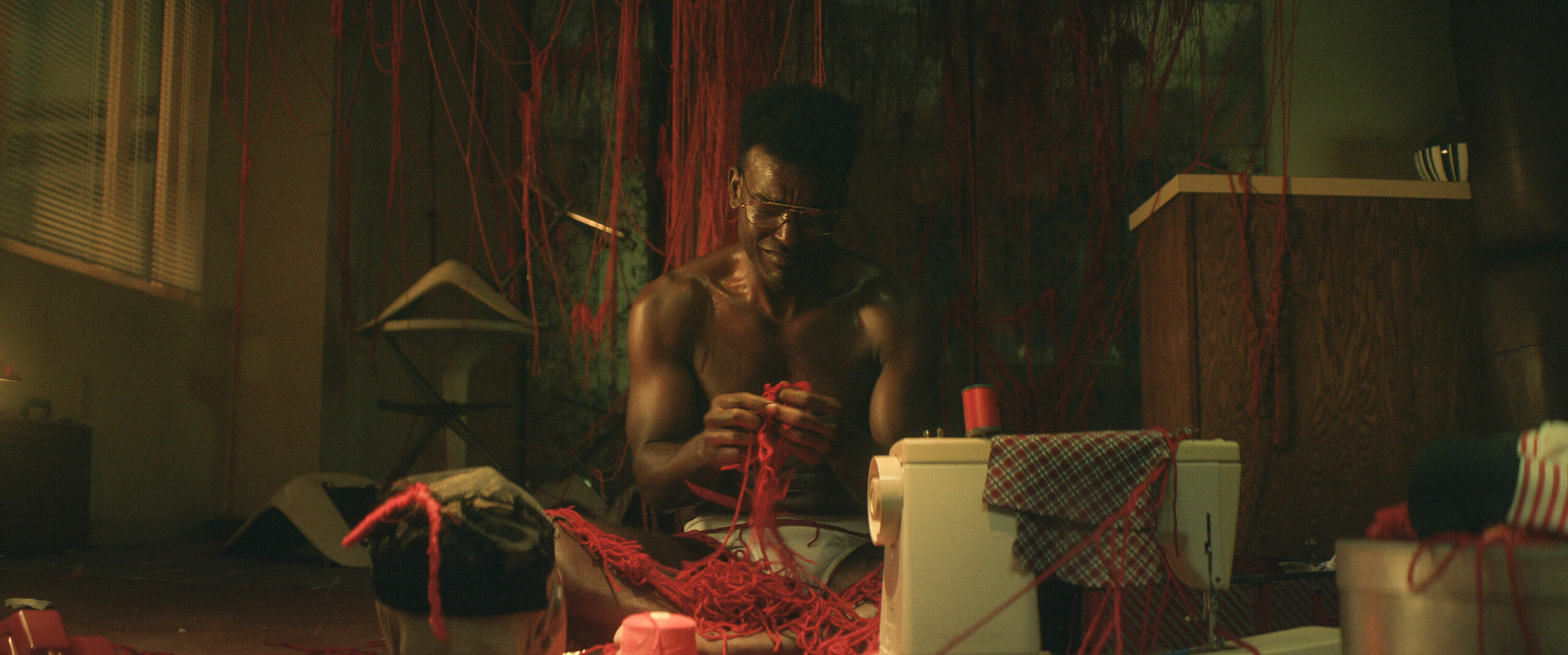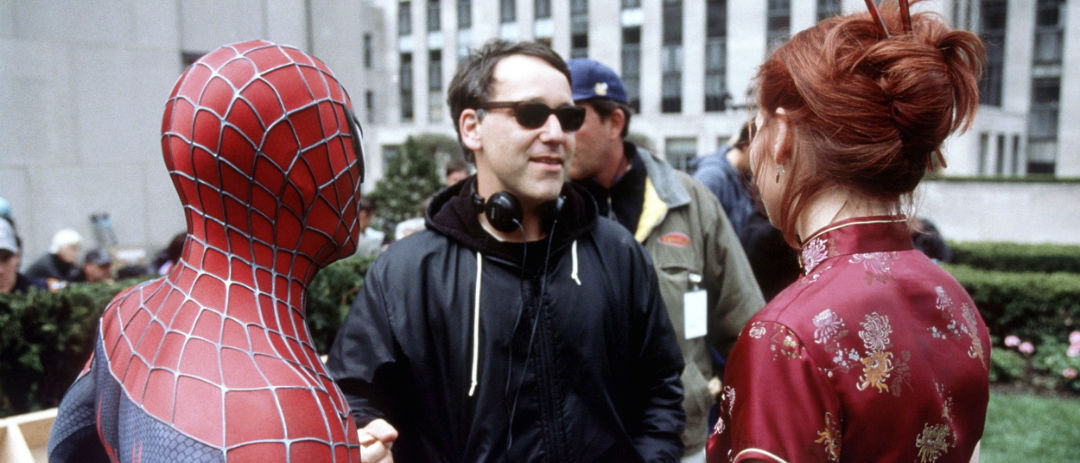Director Rubika Shah new documentary White Riot is released in the US and Canada today!
Though it takes place over 40 years ago, its message still resonates today. The title of the documentary is named after The Clash’s anti-racism anthem which fits perfect with the documentary. It chronicles the UK’s late 1970s “Rock Against Racism” (RAR) movement, which happened as a result of heightened racial tension in the U.K. The National Front had taken over as the dominant voice of racism. At the same time prominent politician Enoch Powell began pushing an increasingly xenophobic and racist agenda. When popular rock stars like Eric Clapton and Rod Stewart began repeating the same message, music photographer Red Saunders reacted by getting together with Roger Huddle, Kate Webb, Syd Shelton, and Ruth Gregory to launch the “Rock Against Racism” movement.
White Riot gives us the opportunity to relive that movement in music and culture. I had the opportunity to speak with director Rubikah Shah and discuss the adventure she took making this film.
Nancy Tapia: Let’s talk about White Riot. Now, I got to watch the documentary. It was very informative. I’m Mexican, but live in the States, so for me, it’s actually quite a lecture. A lecture about racism back in the 70s. I didn’t know the extreme it reached in England. I appreciate these films. I feel like it’s also more of a power of art with music. It is political, but it comes to show an art can make a difference. Why this project for you?
Rubika Shah: So, yeah it’s exactly that. I love these kind of stories, which are on the face of it. They’re about pop culture or they’re about music or arts. When you dig a bit deeper, there’s something more, there’s more depth to it. So it’s like a lens to look at another issue. I think the thing with racism in Britain is that it’s always been here and I think the British also. There’s a legacy of racism in Britain from either colonialism because Britain was a big empire. Going back to empire and all that stuff. It was a big advocate of racial politics, back in the day. I think that this film was an opportunity to look at some of that stuff and to dig a bit deeper into what happened in the 70s. Especially, being able to look back at, I guess, my parents, especially their experiences of living in the UK. This kind of stuff you don’t really get taught in school. You don’t get taught about that sort of history. Firstly, you only really get taught up to World War II. It’s always about how great Britain is. We all know that there’s a shadier past. So this was a sort of opportunity to look at things a bit more honestly.
Nancy Tapia: You know, that is so true. As an outsider, you always think of England being so perfect and proper. I’ve been to London, explored a bit and it’s absolutely beautiful and peaceful. It looks like people live a much slower pace and more joyful than we do here. Always on the run, living a fast pace. This has brought a whole other picture. So you were involved in the writing and directed the film?
Rubika Shah: Yeah, absolutely. So we made made the film with Ed Gibbs, who’s the producer and co-creator. We came up with the idea together. We had made another film, actually, about David Bowie Let’s Dance: Bowie Down Under before this. Then we knew that we really were into archives. I’ve always been obsessed with archives and music. I used to work in music. Always looking for those stories that sort of tell an interesting music story. That tell an interesting story about something personal. So we developed it together and then we basically spent the last five years making it, which is pretty mad.
Nancy Tapia: Five years?
Rubika Shah: Yeah, a long time. Not like we were making it like every day. Towards the end I was working on it full time, the last couple of years. So yeah, it’s been a big project because it was a difficult film to make because it looks at Britain in quite a hard lie. I think like what you say, when you come here you don’t realize that Britain was going through this, but there’s a lot of people that feel like this. I think Britain’s very, maybe very good at deflecting or looking at other countries and what’s going on there. When actually there’s a lot of problems here that need to be fixed.
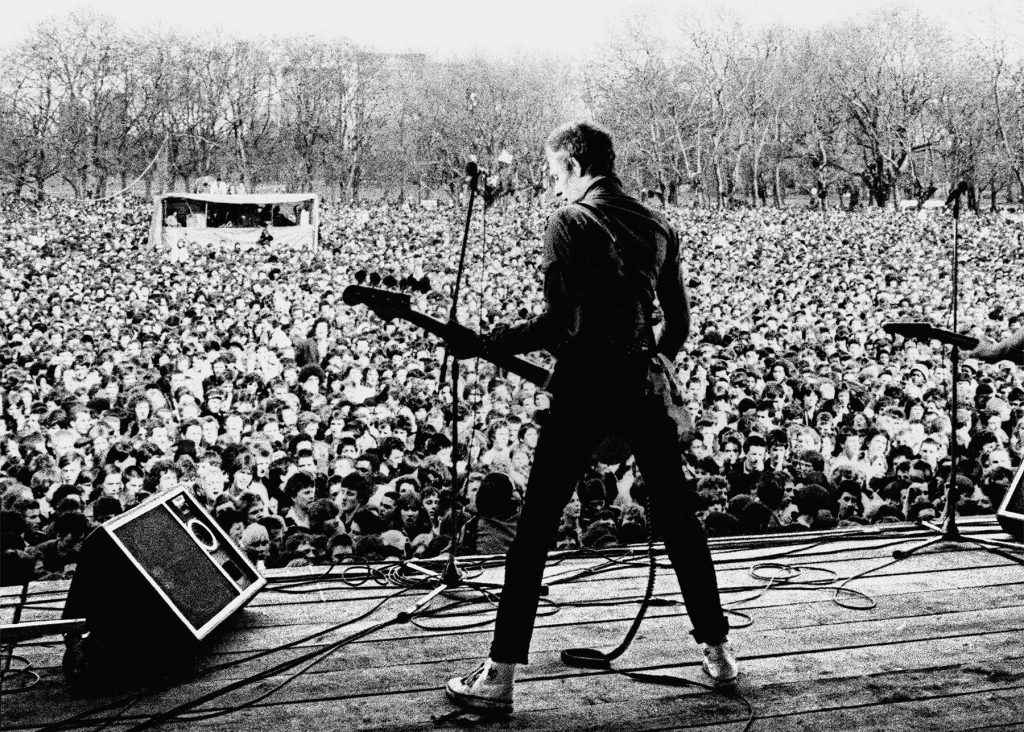
Nancy Tapia: Right, I understand why you started doing it. You said you’ve worked with music. So was this easy for you? To integrate the music with the history and also the people’s opinions and beliefs?
Rubika Shah: Yeah, so I think this is why it took so long because we were trying to figure out how you want to tell the story. There’s so many different ways to tell it, isn’t it? The actual movement itself, too, went on for five or six years. It was multifaceted. So there were so many different things that they were involved in.So many different gigs, but we just figured out that we wanted to tell the story of the birth of Rock Against Racism. We wanted to tell a story, which ended on a high and the way that we thought we could do that was to end with the Carnival. So, that already gave us an idea of like, “Well, actually, we’re just going to get really deep into these characters, the people that started it.”
Because the thing that really got me was that it was a group of everyday people that came together and created something really unique. They did it like with their bare hands. They were calling people on the phone. There was a real richness to that because it’s not like they had any big organization behind them or any source of money. They were basically pulling favors from people and stuff like that.
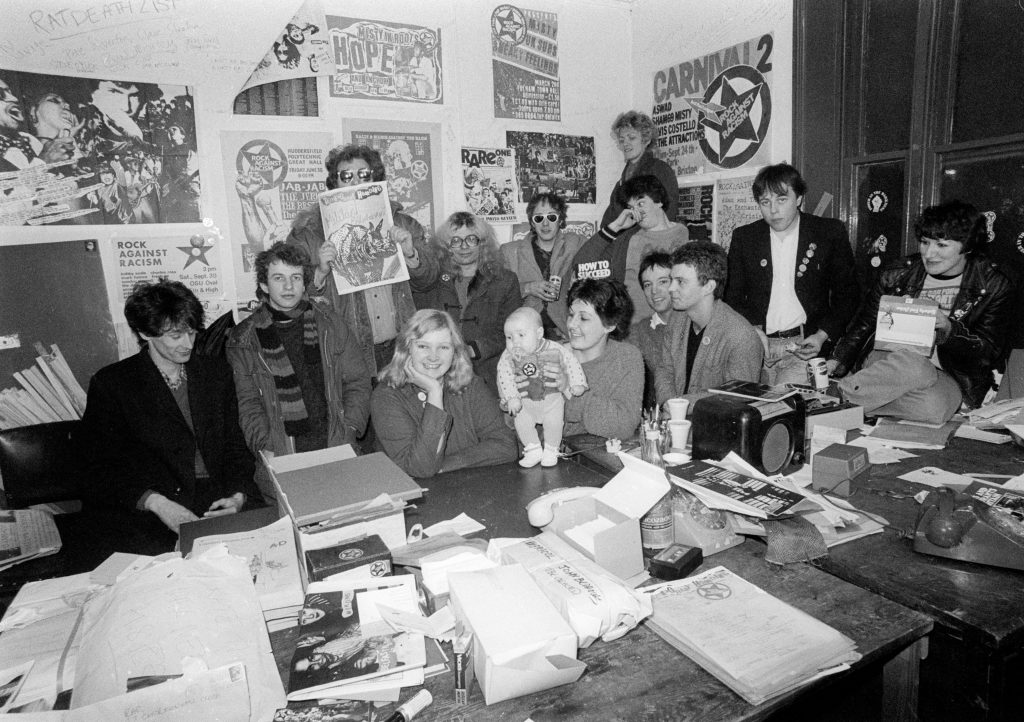
So, bringing their music into it and being able to rediscover new punk bands, was brilliant. There were punk bands that I’ve always really been into The Clash and Joe Strummer is just very prolific in his work and his background. So I’ve always felt like I know punk. It was really fun to get to know new punk bands that I hadn’t heard of and weaving that music into the film.
ALSO READ: The Devil Has A Name: Edward James Olmos Directs A Serious Topic With A Touch Of Humor [Exclusive Interview]
Nancy Tapia: Yeah and introducing it to some of us that are not familiar. I love it! I actually was hitting Shazam for some of the songs, I’m like, “Who is this?” But some of them Shazam wouldn’t pick up.
Rubika Shah: Oh, really? That’s so weird. That’s interesting. There’s a couple of tracks in there that are super underground that maybe, actually, wouldn’t be on Shazam, but most of them should be.
Nancy Tapia: What was it like when it came to reaching out to these people to be a part of the documentary? Since it’s been so long maybe some were pretty excited and ecstatic to talk about it again. Was there anybody was not interested in looking back?
Rubika Shah: Actually everyone was really into it. It was like a finding mission because the first person we wanted to get was Red, but we couldn’t get to him. We couldn’t find a way of getting in touch with him. We had some email addresses, but either he wasn’t replying or he maybe just wasn’t using that email address. So we started speaking to other people and then you kind of start connecting the dots. If you think about Rock Against Racism, there were hundreds and thousands of people that were involved in it. So this is why we had to narrow the story down. Because it was like, “Well, who are going to be the main characters that we’re going to follow?” We knew that it be Red as soon as we met him, actually. We knew that we wanted him to be a big part of the story because he’s just such a great, captivating person.
So we eventually got to him and then we did have to lobby at first. Because he’d done so many interviews and he’d had so many requests for documentaries and he wasn’t really feeling that well at the time. He had some health problems. So it’s kind of about balancing that as well, because you don’t want to be harassing people then they’re just going to shut down. But you want them to know that you are serious about making this film and that it’d be good to get their support. So when we did, he was totally on board. We interviewed him a bunch of times and was very hospitable with his time.
Nancy Tapia: As you said that I’m wondering, what would have been of the documentary without him. He’s a big key!
Rubika Shah: Really. Yeah, it’s mad. I don’t know, I guess it would have just been a different film. I mean, we could have done it without him, but he’s one of the main guys that wrote the letter. That the whole thing springboards off.
Nancy Tapia: So is he the one that shared all those letters that you displayed?
Rubika Shah: The letters came from different people. Different people in Rock Against Racism have kept different bits of pieces. The letters were part of it. There’s loads of documents and stuff. There’s something quite rich about documents because everything was done by typewriter. So everything’s done with this really cool typewriter font and it’s all letters or handwritten stuff. We could have just had a film with all this stuff in it, but that probably wouldn’t have been very interesting.
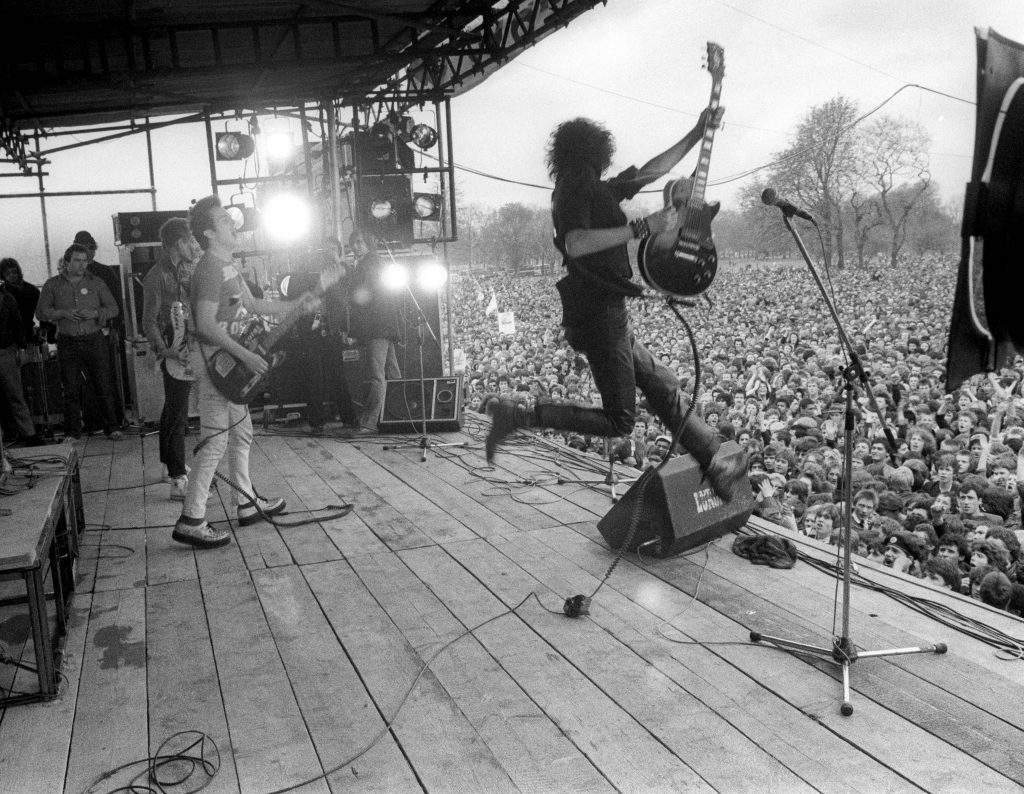
ALSO READ: Then Came You: Craig Ferguson On Filming From His Motherland [Exclusive Interview]
Nancy Tapia: For me it was a highlight because of there were also handwritten letters. You also had some artists in this documentary. That was pretty fun to see, including Tom Robinson?
Rubika Shah: Oh, yes. I haven’t actually watched the film since the beginning of the year, so I should probably know it like the back of my hand. Yes, Tom Robinson.
Nancy Tapia: I’m refreshing your memory, haha
Rubika Shah: Haha…Yes, thank you. Tom Robinson was actually the first person that we interviewed for the film and he’s just so captivating. His stories from the time, because he was massively active with Rock Against Racism, so he was an activist in his own right. He was in a band and they were, at the time he was openly supporting a lot of gay rights and lots of different campaigns. He already had that in him to come on board with Rock Against Racism. One of the amazing things that he said, I don’t think we included in the film, but it’s such a lovely story. Fans would write to him and he would always reply. That’s how he and Kate Webb had their connection, because she was a really big fan of Tom Robinson. She would write to him, he would always write back. So then that’s the sort of pre-Rock Against Racism story.
Nancy Tapia: That’s awesome! This film is going to be watched in the U.S. and Canada this October 16th. What do you hope that people take away from this film? Especially with what has been going on there in the U.S. as we are approaching election soon?
Rubika Shah: I know it’s crazy, isn’t it? Crazy time! My brother lives in Houston, actually. So I get quite a bit of updates from him and his wife about stuff. So sorry, going back to your question, I heard that people feel inspired. I hope that people feel that maybe there’s some lessons that could be learned from the era. But also from the movement, because Rock Against Racism was, literally, young people coming together and doing something. Like grassroots activism. It started off really small, from a conversation between people that had a shared sensibility. I think that there’s a lesson that can be learned there today that it doesn’t matter how small you think your voice bit by bit can get bigger and bigger. It will become something substantial.
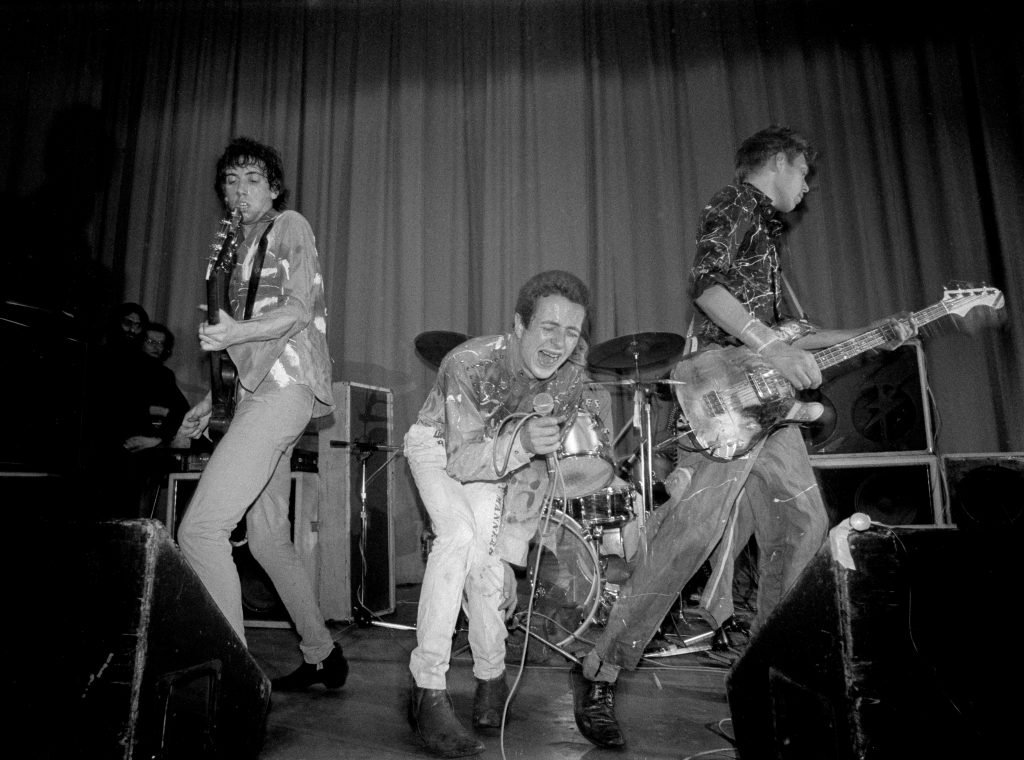
Nancy Tapia: To finalize, I have to ask you about the title. Was the White Riot the original title from day one?
Rubika Shah: It was from day one. There’s White Riot, The Clash song, which a lot of people say shit. Actually, White Riot is kind of an interesting take on it from my perspective, because it was like white people basically rioting against what was happening at the time. It was like rising above and their activism. So that’s where the idea for it being a White Riot came from. Actually originally it was going to be A White Riot, because they’d done an exhibition or something. So then it just ended up being a nice tie-in because, obviously, we end with White Riot, as well.
Nancy Tapia: Yeah, the song made a perfect ending.
Rubika Shah: Yeah. It had a few differences like Rock Against Racism Documentary. It was called that for a while. Which is a really boring title. We just really liked White Riot. It’s just punchy and it has a few different meanings. It’s also about reclaiming it because in Britain, White Riot got taken by the skinheads and the racist skinheads. It’s about taking that title back and saying, “No, actually it’s not in relation to that. It’s about anti-racism, anti-racist activism.”
Nancy Tapia: Ah, okay. See, learning a little more here from you. Well, thank you so much for your time. I’m interrupting dinner at your end.
Rubika Shah: Oh, no worries at all.
Nancy Tapia: We’re excited to watch this film and I’m pretty sure other people like me will appreciate your documentary. They will get a little educated on racism issues in the U.K.
Rubika Shah: Absolutely. Well, thank you for chatting and really great to hear that you enjoyed the film.
Nancy Tapia: I did. Thank you so much and you take care.
Rubika Shah: Thanks a lot. Have a great day.
White Riot is available on demand and streaming today, October 16th.
Source: LRM Online Exclusive

 FOR FANBOYS, BY FANBOYS
Have you checked out LRM Online’s official podcasts and videos on The Genreverse Podcast Network? Available on YouTube and all your favorite podcast apps, This multimedia empire includes The Daily CoG, Breaking Geek Radio: The Podcast, GeekScholars Movie News, Anime-Versal Review Podcast, and our Star Wars dedicated podcast The Cantina. Check it out by listening on all your favorite podcast apps, or watching on YouTube!
Subscribe on: Apple Podcasts | Spotify | SoundCloud | Stitcher | Google Play
FOR FANBOYS, BY FANBOYS
Have you checked out LRM Online’s official podcasts and videos on The Genreverse Podcast Network? Available on YouTube and all your favorite podcast apps, This multimedia empire includes The Daily CoG, Breaking Geek Radio: The Podcast, GeekScholars Movie News, Anime-Versal Review Podcast, and our Star Wars dedicated podcast The Cantina. Check it out by listening on all your favorite podcast apps, or watching on YouTube!
Subscribe on: Apple Podcasts | Spotify | SoundCloud | Stitcher | Google Play

